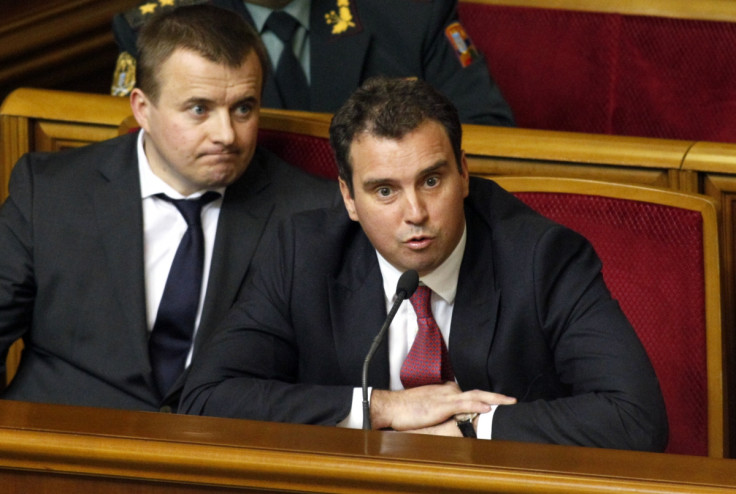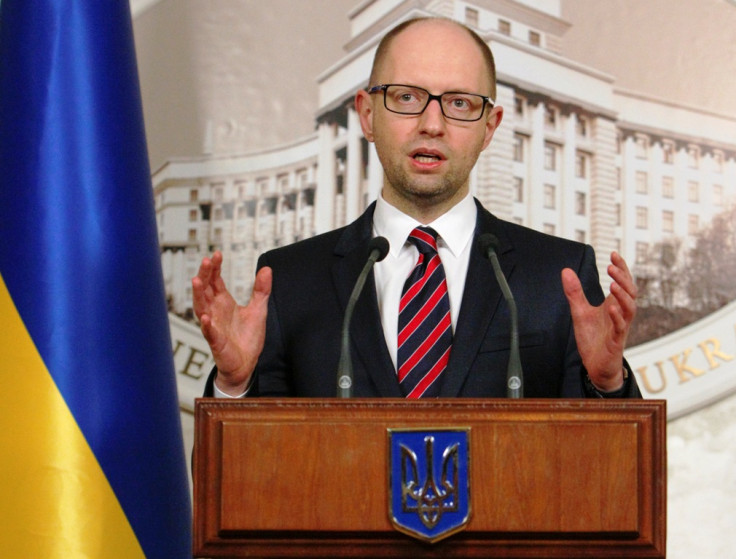Ukraine: Resignation of economy minister could have wider consequences for west

Political turmoil caused by the resignation of Ukraine's economy minister Aivarus Abromavicius could endanger reform in the country and have wider consequences beyond its borders. President Petro Poroshenko had brought in and given Ukrainian citizenship to the Lithuanian-born Abromavicius to overhaul the economy.
But Abromavicius accused the senior lawmaker, Igor Kononenko, a close ally of the president, of trying to push his own people into key positions that oversee the revenues of the defence and energy sectors. Among those who doubted whether Ukraine was heading towards transparency, there was a nod of recognition at Abromavicius's comment that he had "no wish to be a cover for open corruption".
The speaker of Ukraine's parliament, or Rada, Volodymyr Groysman, described the resignation as a "serious political crisis" and ambassadors in Kiev from 10 countries took the unusual step of signing a joint statement expressing their disappointment.
Any threat of Prime Minister Arseny Yatseniuk's government collapsing would worry Ukraine's Western partners, who have backed the coalition to keep the country from falling back into Moscow's orbit.

Given the conflict in the east of the country and as observers view a destabilised Ukraine as playing into the hands of Russian president Vladimir Putin, the stakes are high.
Anders Aslund, of the US based Atlantic Council said that the International Monetary Fund, the US and the EU had been expected to provide a total of $4bn (£2.7bn) in credits later this month but none would contribute unless the Ukrainian government is committed to fighting corruption.
In a report quoted by AFP, he said that this domestic political crisis is: "likely to have major political repercussions", adding that: "The confidence of Western governments in the current Ukrainian administration is running low."
Daragh McDowell of the risk analytics firm Verisk Maplecroft told Reuters that the exit of Abromavicius "will fatally undermine what little confidence investors still had in the Poroshenko administration and Ukraine's economic prospects in general". Reforms since Abromavicius had been in the job have been tied to some $17bn (£11.7bn) in loans Kiev has received from the United States, European states, and the International Monetary Fund.
Slow pace of change
But a slow pace of change now threatens to derail a $40bn (£27bn) aid-for-reforms deal championed by the IMF, the EU and the US, the news agency said. It also pointed out that Abromavicius's exit could derail plans to privatise around 100 state-owned companies, which were key to improving an economy which shrank by more than a tenth last year.
Former British ambassador to Ukraine and chairman of the Ukraine Forum at Chatham House, Robert Brinkley, said that there is a battle in Ukraine going on between the old ways of doing things, which involve corruption, and the new ways, which do not.
He told IBTimes UK: "Abromavicius represented the new way and that struggle is still going on. I don't think it is about different forms of corruption it is a question here about what is right and what is wrong and corruption is always wrong." Brinkley said that resignation would not necessarily sound the death knell for the Ukrainian government as there were still reformists in place.
"Ukraine is in a vitally important position between the EU and Russia and north of the Black Sea. It has 45 million well-educated people; the last thing anyone wants is economic collapse or failure in Ukraine which could lead to more people knocking on the doors of the European Union.
"The stakes are high for the EU and the West to ensure Ukraine is a success and not a failure," Brinkley said.
© Copyright IBTimes 2025. All rights reserved.






















